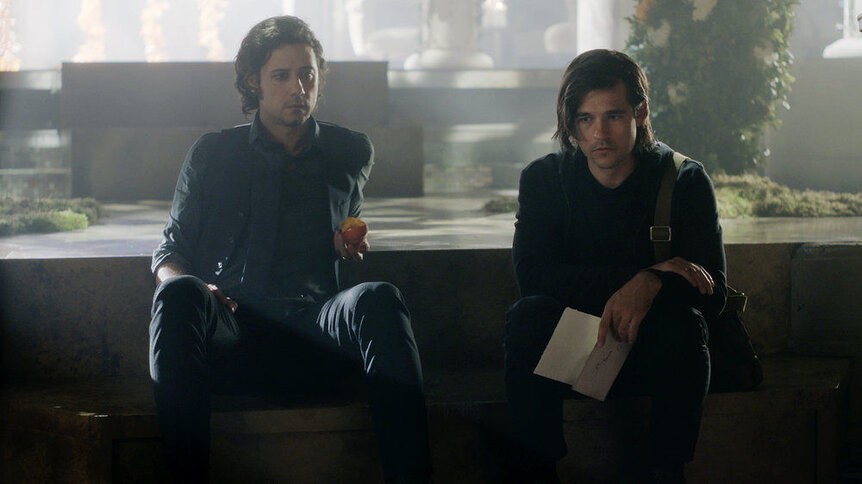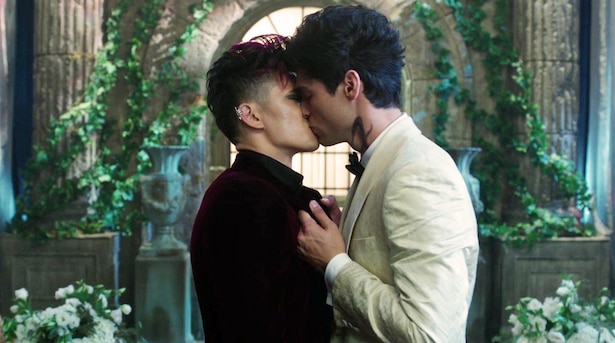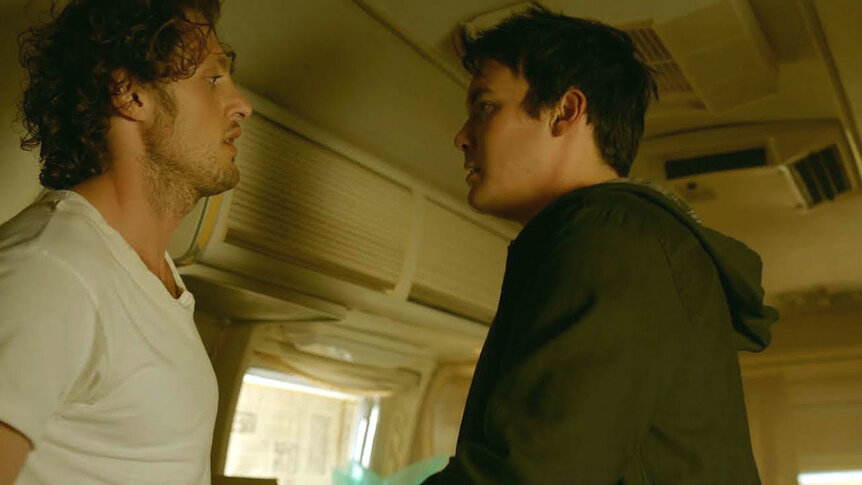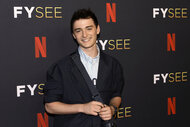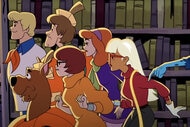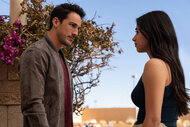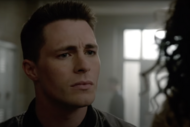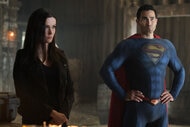Create a free profile to get unlimited access to exclusive videos, sweepstakes, and more!
Aliens, angels, and magicians: how genre is championing slash fandom
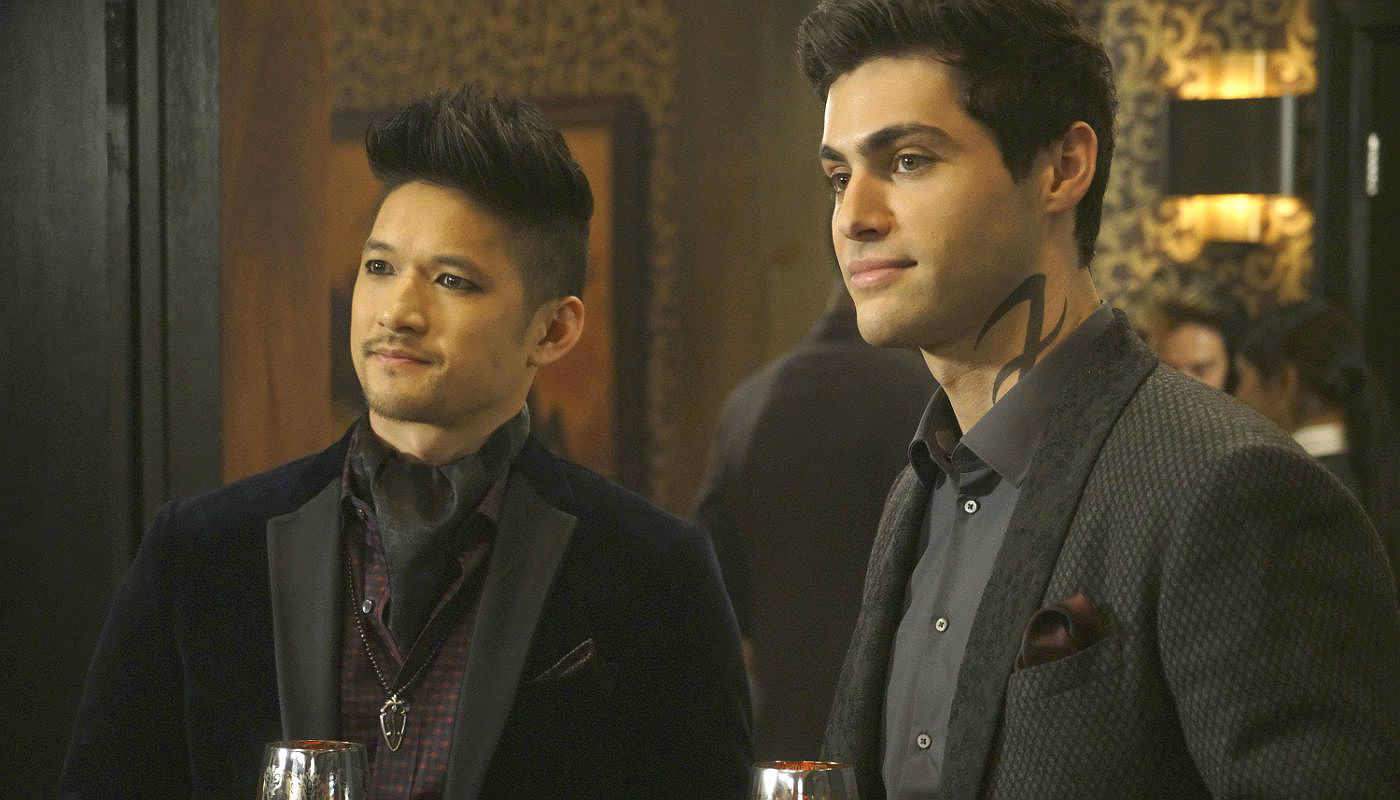
When it comes to queer relationships on television, we’ve been taught to “read between the lines.”
Often, same-sex couples are teased or alluded to on shows, but the real work of defining them falls to the fans. How many times has the unresolved tension between a pairing on TV left you so frustrated that you looked to the internet, to fanfiction sites and Tumblr fanart, to fill in the gaps?
In no way is that a bad thing. Some truly creative work exists on those sites, and it speaks to the passion and commitment of the fans who put in so much of their own time to extend the life of a story they love. But TV can do more, and it should do more, especially when it comes to spotlighting the queer experience.
It is doing more, if you know where to look.
If the word “fanfiction” conjures up nightmares of poorly written BDSM scenes and questionable power dynamics, surely “genre” and “YA” don’t fare much better. We’ve been conditioned to see all three as somehow less than prestige, as lacking in quality, in execution. Genre is a playground and YA is for kids — that’s the narrative, but not when it comes to sexuality, and certainly not when it comes to these shows.
In fact, in the world of LGTBQ characters on TV, it’s a trio of young-adult-oriented series that’s putting the rest of its peers to shame. We’re talking about Freeform’s Shadowhunters, SYFY’s The Magicians, and The CW’s Roswell, New Mexico. Each of these shows has taken the rulebook for queer representation on screen and thrown it out the metaphorical window. They’ve scoffed in the face of heteronormative romance tropes, trashed cis white-male hero formulas, and proven that slash can be sexy and thought-provoking and worthy of storylines that are just as all-encompassing, just as vital as their straight counterparts.
The Magicians may be the best example of this.
What began as a series about a bunch of 20-somethings hooking up and playing at magic has transformed into a seven-layer bean dip of sociopolitical commentary. Quentin Coldwater (Jason Ralph) was quickly established as the show’s de facto champion: a straight, white male destined to save the world. Except, as it turns out, Quentin wasn’t exactly straight, and he hasn’t been all that great at saving anyone. Instead of relegating him to the kind of savior type that’s as dimensional as a sheet of paper, the show gave Quentin a life-changing relationship with a man, Eliot Waugh (Hale Appleman).
The two went through the normal stages of a romance, plus an awkward threesome that ruined Quentin’s previous relationship with a woman. In Season 3’s “A Life In a Day,” the show spent an entire episode crafting their story, watching them grow old together, raise a son, and find peace and happiness before thrusting them back into the real world. Even when that dalliance was over, Eliot and Quentin still subconsciously held onto that lived life.And if The Magicians does a good job at envisioning a lasting queer romance, complete with all the normalcies hetero couples experience, Freeform’s Shadowhunters does the opposite. Instead of situating its male characters in a world where they’re accepted for their sexual orientation, where their fluidity isn’t even questioned, let alone questioned by them, Shadowhunters imagines the sweet agony of falling in love for the first time. It explores another common trope through a different pair of eyes with Alec (Matthew Daddario) and Magnus’ (Harry Shum Jr.) relationship.
For Alec, loving a man isn’t just forbidden by his family and the order he belongs to, it’s equated with shame, a shame he can’t bear to bring upon those he loves. He’s been conditioned to repress his desires, to reject his identity to make others comfortable. In that way, his story feels incredibly grounded. For Magnus, a warlock with thousands of notches on his bedpost, both male and female, sexuality is no longer a defining character trait. He unapologetically loves and lives, despite the world compelling him not to.
Both men are examples of a before and after, what happens when we start accepting instead of condemning, embracing instead of rejecting. And the way their romance is brought to life, with Alec struggling to find courage to live his truth but never shaming his partner for his bisexuality, with Magnus understanding that what Alec needs most is time, not unrelenting pressure to “come out” to those closest to him, feels like a model other shows should strive for.And some are.
The CW’s Roswell, New Mexico is a fairly new reboot of a classic sci-fi hit, a story about aliens secretly inhabiting Earth. It lends itself to all kinds of political commentary — already immigration, racism, sexism, and fear-mongering have been touched upon by the show — but one of its greatest strengths is its slash pairing of Michael (Michael Vlamis) an extraterrestrial bad boy, and Alex (Tyler Blackburn) a disabled war vet. The two men fight against a town that moves at a glacial pace when it comes to progressive ideals.
They’re dusty cowboys having secret hookups in old sheds and sharing beers in a truck bed. They challenge the notion that queer relationships exist only in bubbles, in sprawling metropolises like New York and L.A. They explore the unique challenges that same-sex couples who live in Bible-belt towns — the kinds of places crooned about in country songs where churches preach a fire-and-brimstone message — face. Not only must these two men reckon with the way the world views them — Michael as a screw-up, Alex living in the shadow of his abusive father — they must sort through their own feelings in the dustbowl.
There’s a reason that these three narratives have made such an impact with fans. You can’t scroll through Twitter or log onto Tumblr without hashtags popping up, live-tweets trending, artistic masterpieces filling your screen.Actually, there are a few reasons.
The most obvious is that we’re starved for this kind of representation. Not just queer romance or guy-on-guy action, but the idea that male characters can be vulnerable with one another. These relationships don’t just challenge preconceived notions of sexual fluidity, they challenge the very definition of masculinity. How refreshing is it to see two men be unguarded with one another, to forego typical power-dynamics in exchange for healthy relationships free of ego and traditional gender roles? Slash pairings aren’t just “kink,” they’re an opportunity to afford men the rarity of showing their emotions, of taking that harmful belief that sentiment equates weakness and burning it on a funeral pyre. It helps that the acting sells the romance of course.
The pairings on these shows are all unique but they hold a commonality — actors who seem genuinely invested in doing right by the fandoms they carry. It’s a burden to be sure, but also a gift to be able to give people a new experience on TV and watching these men play out their romances on-screen always feels like the latter.
But perhaps the biggest reason fans seem to so enjoy these slash pairings is because of the genre they’re housed in. No shade to those “prestige” dramas based in reality, but there’s a lot that magic and aliens and demon hunters can do for queer fandom that Will & Grace just can’t. These characters are constantly thrown into high-stakes situations, asked to confront impossible odds, to live outside the realm of possibility. Why then should their love not also seem possible?
The worlds they’re inhabiting are so “other” that often, their sexuality feels less problematic. Not an after-thought or a cheap tease, but not the end of the world, the life-definer that it’s so often seen as on other shows. Sure, they tackle issues of acceptance, homophobia, and identity-crisis, but these guys have other problems too, a refreshing concept that reminds us no person, no couple is just one thing. Alex’s gay, Michael’s bisexual, Magnus is thousands of years old with the list of ex-lovers to prove it, but they’re also outsiders in other ways: they’re disabled, they’re illegal aliens, they’re downworlders. Their sexuality is just one piece of the larger puzzle and because genre offers a chance to focus on more than one world-ending, apocalyptic plot point at a time, it’s almost never the most significant one.
So maybe, instead of regulating “slash” to fanfiction archives and Tumblr accounts, TV can wise-up and take a page from these shows on how to make queer romance more than just a token plot-device.
And if you have to add in some alien life forms or Nephilim warriors or orgy-loving magicians to do it... well, we won’t complain.
